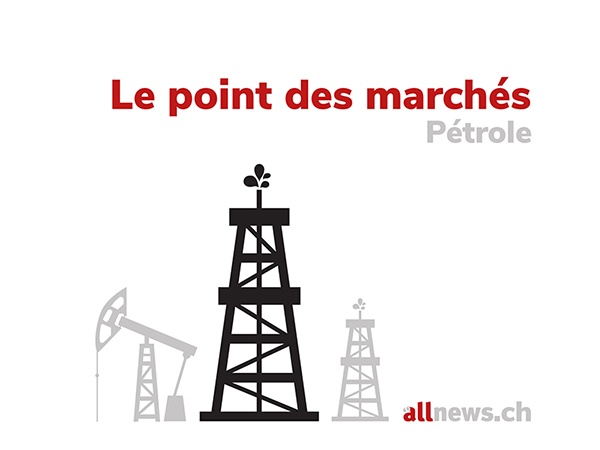Weighted down by trade tensions, WTI and Brent prices closed at their lowest for the year.
–
The price of a barrel of New York oil ended its worst session of the year on Thursday with a 5.7% plunge against a backdrop of strong risk aversion linked to persistent trade tensions between the United States and China
A barrel of WTI for July delivery ended at $ 57.91, losing $ 3.51 on the session. At the same time, it fell to its lowest since the beginning of December.
In London, a barrel of Brent for the same maturity also cashed in its worst session of the year by dropping $ 3.23, or 4.55%, to $ 67.76.
Several statistics released Thursday raised fears of a slowdown in the global economy, as the world’s two largest economies, the United States and China, are embroiled in a trade war.
According to the first estimate of the composite PMI index by the firm Markit published on Thursday, growth in private activity in the United States slowed sharply in May to 50.9 points, its lowest level in three years.
The index measuring manufacturing output, at 50.6 points, even dropped to its lowest level since 2009.
Growth in private activity in the euro zone accelerated slightly in May, but remained “sluggish”, according to the first estimate of the composite PMI index by the firm Markit.
“It’s disappointing,” said John Kilduff of Again Capital of these numbers.
Oil, like other commodities, is seen as a value at risk, the demand for which is dependent on the health of the rest of the economy, and consequently suffers from tensions between China and the United States.
Also a source of lower prices on Thursday, the relative lull in tensions in the Middle East between Saudi Arabia and Iran, although Riyadh claimed to have intercepted and destroyed a drone loaded with explosives from Yemen on Thursday.
“It happens very often now and doesn’t cause any real damage anymore,” responded John Kilduff. “It’s worrying, but nothing suggests that we are at the stage of escalating violence,” added the specialist who says that brokers are betting a little less on an increase in geopolitical risk compared to the last week.
Riyadh has been leading a coalition since 2015 that fights the Houthis in Yemen, supported by Iran and who control vast regions of the west and north, including the capital Sanaa.
The Houthis had claimed responsibility for a drone attack that damaged an oil pipeline in Saudi Arabia on May 14, two days after a mysterious sabotage of four ships, including two Saudi tankers, at the entrance to the Gulf.
–


/i/2003780780.png?f=fpa)